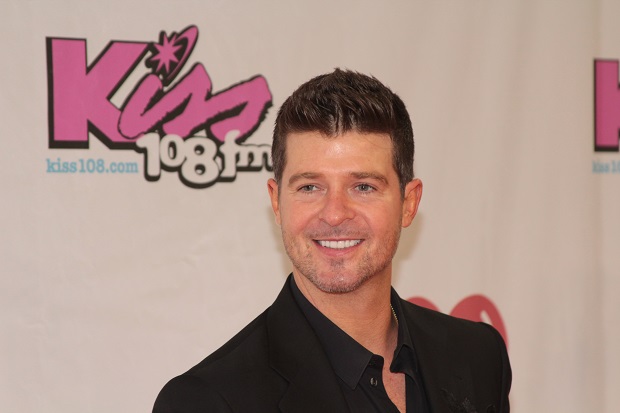Music can unite, divide, incite and even disgust people from all cultures, age groups and backgrounds. As increasing numbers of academic textbooks are labelled with trigger warnings, music has fallen under the same spotlight on campus.
Below, you can find a playlist we’ve curated of different songs, artists or genres that have been censored on campuses across the world.
1) Eminem – My Name Is
One of the all-time kings of controversy, Eminem is an artist whose records include profanity, misogynistic and homophobic slurs, and even the occasional jab at international pop stars. His persona was so detested by some college administrators that in February 2001, the Sheffield University student union banned his music altogether. The university’s radio station and DJs at union’s club nights were instructed not play any of the rapper’s music in order to “create a culture of tolerance, equality and respect”.
2) Robin Thicke – Blurred Lines
Robin Thicke’s Blurred Lines upset many UK students in 2013, resulting in more than 20 student unions banning the song. This was due to its lyrics, which many argued a rape culture by disregarding the idea of consent.
3) Rage against the Machine – Take the Power Back
4) KRS-One – Sound of Da Police
Superintendent John Huppenthal, on behalf of the state of Arizona, issued a “notice of non-compliance” to Tucson Unified School District. Cholla High Magnet School in the school district used the Rage Against the Machine song Take the Power Back in a Mexican-American history class and hip-hop legend KRS-One’s essay on the genre in an African-American-focused English class. After censoring the use of his music, RATM guitarist Tom Morello tweeted that hip-hop is “only dangerous if you teach it right”.
5) Rustie’s song Attak featuring Danny Brown
Due to the perceived increase of the drug MDMA at electronic dance music concerts and festivals, the University of Massachusetts, Amherst, took the decision in November 2013 to ban all EDM events from taking place on campus. Students responded with numerous petitions and organised a flash mob outside the student union in protest.
6) Shokazoba – Chemical Abuse
The performance of an predominantly white afrobeat band, Shokazoba, at Hampshire College, Massachusetts, was cancelled in October 2013 after the selection of the group became controversial. A statement posted on the school’s website said the cancellation was due to “concerns about cultural appropriation and the need to respect marginalized cultures”. The band, who play afrobeat music, were considered “too white”.
7) The Kingsmen – Louie Louie
The 1950s standard Louie Louie was temporarily pulled from performances by a middle school’s marching band in Benton Harbor, Michigan, due to its “sexually explicit lyrics”. The song was eventually allowed, but not before Superintendent Paula Dawning said it wouldn’t be appropriate for Benton Harbor students to play.
8) Bad Religion – The Empire Strikes Back
In October 2015, Biola University in Los Angeles County decided to it would no longer play anything but Christian music in campus coffee shops following a series of complaints, according to The Biola University Chimes, the school’s student newspaper. A senior member of staff told the newspaper at the time: “When we are in a Christian school…we have to kind of walk that line.” In November 2015, the administration began having members of the student government work with the school’s university services to select playlists, according to representative of Biola.
9) Bruno Mars – Locked out of Heaven
Despite it being one of the most popular songs of 2012, Bruno Mars’ Locked out of Heaven found itself onto the no-no list for Garden Spot High School’s marching band programme. The Pennsylvania school had board members who claimed the lyrics of Mars’ smash-hit were “trashy” and “inappropriate” for students.
Index on Censorship has teamed up with the producers of the award-winning documentary about Mali’s musicians They Will Have To Kill Us First to create the Music in Exile Fund to support musicians facing censorship globally. You can donate here, or by texting “BAND61 £10” to 70070 to give £10.
This article was amended on 2 February 2016 to reflect updated information about music playlists at Biola University.





